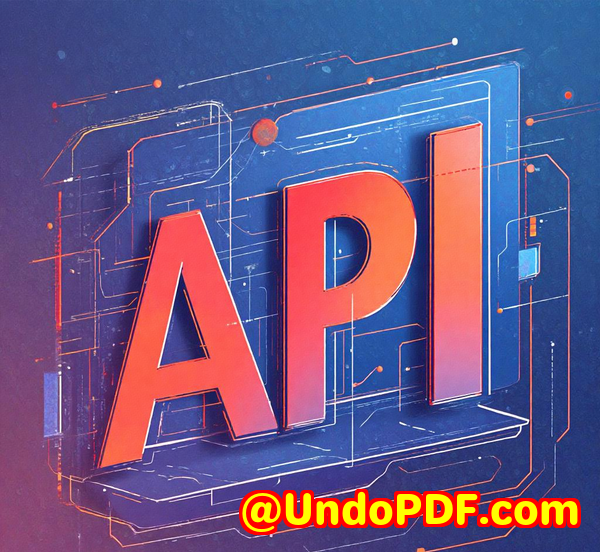How Web Developers Can Add Barcode Recognition to Mobile Browsers Without Compromising Speed or UX
How Web Developers Can Add Barcode Recognition to Mobile Browsers Without Compromising Speed or UX
Every time I worked on a web app that needed barcode scanning, I hit the same brick wall: either the scanner was painfully slow or the user experience felt clunky and unreliable. I remember struggling to build a mobile-friendly web solution that could scan barcodes quickly without forcing users to download a separate app or wait forever for results. It seemed like I had to choose between speed and seamless user experience, and that was frustrating.

That’s when I stumbled upon the VeryUtils JavaScript Barcode Scanner SDK for Web and Mobile Apps. This SDK changed the game for me. It’s a lightweight, powerful JavaScript library that lets you add real-time barcode scanning directly in mobile browsers and desktop web appsno app installs, no slowdowns, no fuss. If you’re a web developer looking to integrate barcode recognition while keeping your site lightning-fast and easy to use, you’ll want to hear about this.
Why This SDK Stands Out for Web Developers
The VeryUtils JavaScript Barcode Scanner SDK is designed for people like medevelopers who want enterprise-grade features without the headache of building everything from scratch. It supports scanning both 1D and 2D barcodes, including QR codes, DataMatrix, and a variety of postal codes. But here’s the kicker: it can scan up to 20 barcodes per second with over 99% accuracy, even when the codes are damaged or the lighting isn’t ideal.
The SDK works fully inside the browser, using WebAssembly for performance. That means users just open your web app, point their camera at a barcode, and boomresults in real time. No downloads, no permissions hassle, just scanning.
Who Benefits Most from This?
If you’re building web or mobile applications that need barcode scanningthink inventory management, event check-ins, retail POS systems, or logistics trackingthis SDK is perfect. It’s also great for businesses that want to offer scanning functionality without forcing users to download a native app or rely on third-party software.
For example, I worked with a small warehouse team that used handheld devices. They wanted a simple way to scan barcodes on packages through their web portal. With this SDK, I built a smooth, responsive scanner that worked on their mobile browsers. No more juggling multiple apps or devices.
Core Features That Made Me a Fan
Here are a few features I’ve leaned on heavily and why they’re game changers:
-
Real-Time Scanning From Video Streams: This is the bread and butter. The SDK captures live video from the user’s camera and decodes barcodes on the fly. The scanning speed is insaneover 500 barcodes per minute. It felt like magic when I saw it in action. Users get instant feedback without delays.
-
Multi-Barcode Scanning: You can scan multiple barcodes quickly, batch processing without breaking a sweat. This was vital for inventory apps where users need to scan dozens of items fast. The SDK also provides user guidance with visual, audio, and haptic feedback, making the scanning experience intuitive.
-
Offline and Private Network Support: Not every warehouse or retail outlet has reliable internet. The SDK works offline as a Progressive Web App (PWA), so scanning doesn’t stall when connectivity drops. Plus, it supports deployment on private intranets, keeping your data secure.
-
No Setup or Installation: Because this is pure JavaScript with WebAssembly, there’s no need for users to install anything. You just add a few lines of code to your site, and your users can start scanning immediately. That’s a huge plus when onboarding clients or end-users.
-
Security and Compliance: The SDK respects privacy, following strict security standards. In industries like healthcare or finance where data protection matters, this was a big selling point.
My Experience Building with VeryUtils SDK
Integrating the SDK was surprisingly straightforward. I included the JavaScript file, set my license key, and within hours, I had a fully functional scanner running in my test app.
What really stood out was how smoothly it handled different barcode types. In one test, I scanned a batch of damaged QR codes and even wrinkled DataMatrix labels. The SDK’s advanced algorithms decoded them almost flawlessly, which other libraries I’d tried simply failed to do.
Another highlight: the user feedback features. The visual guides helped users position the camera, and the beep/vibration on successful scans gave clear confirmation. I saw a noticeable drop in scanning errors just because of these little touches.
Compared to other barcode SDKs or native apps, VeryUtils struck the perfect balance between performance, ease of use, and integration simplicity. Native apps can be fast but require downloads and updates, while other web solutions often lag or don’t support offline use well.
Where This SDK Shines in Real Life Use Cases
-
Retail and POS: Let customers or cashiers scan products directly via mobile web apps, speeding up checkout without new hardware or apps.
-
Warehousing and Logistics: Staff can quickly scan packages or pallets on their handheld devices using a browser, even in low-connectivity environments.
-
Event Check-Ins: Scan tickets or passes using any camera-equipped device, speeding entry and cutting down on lines.
-
Healthcare: Scan medication or patient wristbands through secure web portals without installing new software, improving workflow and safety.
-
Field Service: Technicians can scan parts or equipment barcodes via mobile browser apps on-site, even offline.
Summing Up: Why I’d Recommend the VeryUtils JavaScript Barcode Scanner SDK
If you’re a web developer looking to add barcode recognition to mobile browsers without compromising on speed or user experience, this SDK should be on your radar. It tackles common pain points head-on: no slow loading, no complicated installs, offline support, and an impressive recognition rate even in tough conditions.
Personally, I found it saved me hours in development and delivered a product that users loved for its responsiveness and reliability. The flexibility of deploying on public sites or private networks and the ability to scan multiple barcodes quickly made it invaluable.
If your web or mobile project needs barcode scanning, don’t settle for clunky, slow, or complicated solutions. This SDK lets you build something fast, smooth, and user-friendly.
Click here to try it out for yourself: https://veryutils.com/javascript-barcode-scanner-sdk
Start your free trial now and boost your productivity.
VeryUtils Custom Development Services
VeryUtils isn’t just about off-the-shelf products. They also offer custom development services tailored to your specific technical needs. Whether you want to build advanced PDF processing utilities on Linux, Windows, or macOS, or you need tools for barcode recognition, OCR, printer job capture, or document security, VeryUtils has the expertise.
Their team can help create custom Windows Virtual Printer Drivers, API hooks for Windows file monitoring, or cloud-based document conversion and signing solutions. They support a broad range of technologies including Python, PHP, C/C++, JavaScript, .NET, and mobile platforms.
If you have a unique project or require specialised document or barcode processing tools, reach out to VeryUtils through their support center at http://support.verypdf.com/ to discuss your requirements.
FAQ
Q1: Can the SDK scan barcodes without an internet connection?
Yes, it supports offline scanning as a Progressive Web App, allowing scanning even with limited or no internet access.
Q2: What barcode types does it support?
It supports a wide range including Code 39, Code 128, QR Codes, Data Matrix, PDF417, Aztec, and several postal codes.
Q3: Is the SDK compatible with all browsers?
It works on modern browsers with camera access support, including mobile browsers on iOS and Android.
Q4: How fast is the scanning?
The SDK can scan over 500 barcodes per minute with 99% accuracy in real-time video streams.
Q5: Does it require users to install any software or apps?
No, it runs entirely in the browser with no installation needed.
Tags and Keywords
JavaScript barcode scanner SDK
Barcode recognition in mobile browsers
Web barcode scanning solution
Offline barcode scanning SDK
Real-time barcode scanning web apps



